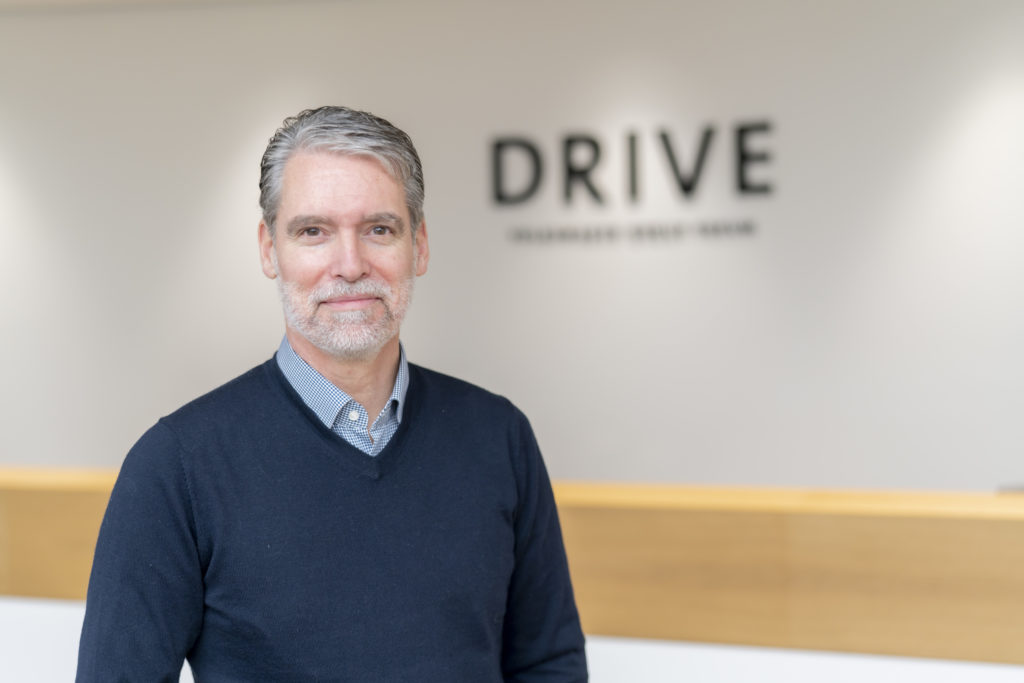
Marco Olomi wurde 1964 Hamburg geboren und wuchs im Rom auf. Nach einer Ausbildung und mehreren internationalen Stationen in der Gastronomie und Hotellerie folgte er dem Ruf eines großen Automobilkonzerns und wurde dort Fachreferent und Projektenwickler Gastronomie.
Nach unterschiedlichen Stationen in leitenden Funktionen innerhalb der Organisation lebt und arbeitet er heute in Berlin.
Der Wandel in der Mobilität und die daraus wachsenden Potenziale für neue Dienstleistungsformen weckte seine Begeisterung und Neugier sich mit innovativen elektromobilen autonom fahrenden Beherbergungstypologien zu befassen.
Seine erste Veröffentlichung die gleichzeitig den Abschluss seines Studiums der Zukunftsforschung an der Freien Universität Berlin markierte, ist eine erste wissenschaftliche Auseinandersetzung mit dieser Thematik und auch die Grundlage für zukünftige Publikationen aus der Reihe “NEW MOBILITY MODE: Autonomous mobile hospitality“.
Marco Olomi ist gelernter Restaurantfachmann und studierte praktische Betriebswirtschaft in Hildesheim. Er hat einen Master in Business Administration (MBA) und einen Master Zukunftsforschung (MA) der Freien Universität Berlin.
„Als ‚Bootlegger’* habe ich mich vor einiger Zeit dazu entschlossen, einen weiteren Master ‚Zukunftsforschung’** an der Freien Universität Berlin zu studieren, um nicht nur das Handwerkszeug für die Analyse von zukünftigen Zukünften zu bekommen, sondern auch um eigene Innovationen, Zukünfte und radikal- disruptive Wege zu erforschen und auszuprobieren. Dabei steht für mich die Verbindung des wissenschaftlich theoretischen Ansatzes mit der wirtschaftlichen, sozialen und praktischen Zukunftsperspektive, insbesondere im Dienstleistungsbereich, im Vordergrund.“
*Was genau ist Bootlegging? „Bootlegging“ war während der Prohibition die Bezeichnung für Schmuggel und Schwarzhandel. Bootlegging-Projekte zeichnen sich daher vor allem dadurch aus, dass sie im Verborgenen in der frühen Phase eines Innovationsprozesses vorangetrieben werden.
Bootlegging bezeichnet F&E-Aktivitäten eines/einer Mitarbeiter*in, der Innovationsideen ohne formale Legitimation in inoffiziellen, verborgenen Innovationsprojekten umsetzt. Es gibt keine offiziell zugewiesen Ressourcen (Zeit, Material, etc.). Die Mitarbeiter besorgen sich die Ressourcen selbst.
Quellen: Schon, D.A., 1963, Champion for Radical New Inventions, in Harvard Business Review, March/April.
Augsdorfer, P., 1996, Forbidden Fruit: an analysis of bootlegging, uncertainty, and learning in corporate R&D.
Michalik, C., 2003, Innovative Engagement: An Empirical Study of the Bootlegging Phenomenon in R&D (in German).
**„Zukunftsforschung ist die wissenschaftliche Analyse von Zukunftsbildern. Sie beschäftigt sich mit möglichen, wahrscheinlichen und wünschbaren zukünftigen Entwicklungen. Denn auch wenn sich die Zukunft nicht vorhersehen lässt, zeichnen sich einerseits schon heute wichtige Entwicklungsstrukturen in ihren Grundzügen ab, andererseits beeinflussen unsere Zukunftsvorstellungen die Art und Weise, wie wir heute leben.“
**Quelle: https://www.ewi-psy.fu-berlin.de/v/master-zukunftsforschung/zukunftsforschung/index.html. Zuletzt am 15.10.2019, www.institutfutur.de
Please excuse any typos.
About me

Marco Olomi was born in 1964 in Hamburg and grew up in Rome (Italy). After an apprenticeship and several international positions in gastronomy and the hotel industry, he followed the call of a large automotive company and became a specialist consultant and project developer for gastronomy and Hospitality.
After holding various management positions within the organisation, he now lives and works in Berlin.
The change in mobility and the resulting growing potential for new forms of service awakened his enthusiasm and curiosity to deal with innovative electric-mobile autonomously driving accommodation typologies..
His first publication, which also marked the completion of his Master’s degree in Futurology at the Free University of Berlin, is a first scientific examination of this topic and also the basis for future publications from the series „NEW MOBILITY MODE: Autonomous mobile hospitality“.
Marco Olomi is a trained restaurant specialist and studied practical business administration in Hildesheim. He holds a Master in Business Administration (MBA) and a Master of Futures Studies (MA) from the Free University of Berlin.
„As a ‚bootlegger‘, I decided some time ago to study another Master ‚Futurology‘* at the Free University of Berlin, not only to get the tools for analysing future futures, but also to explore and try out my own innovations, futures and radical-disruptive paths. For me, the focus is on combining the scientific theoretical approach with the economic, social and practical perspective of the future, especially in the service sector.“
What exactly is bootlegging? „Bootlegging“ was the term for smuggling and black market trade during Prohibition. Bootlegging projects are therefore characterised above all by the fact that they are driven forward covertly in the early phase of an innovation process.
Bootlegging refers to R&D activities of an employee who implements innovation ideas without formal legitimisation in unofficial, hidden innovation projects. There are no officially allocated resources (time, material, etc.). The employees obtain the resources themselves.
Source: Schon, D.A., 1963, Champion for Radical New Inventions, in Harvard Business Review, March/April.
Augsdorfer, P., 1996, Forbidden Fruit: an analysis of bootlegging, uncertainty, and learning in corporate R&D.
Michalik, C., 2003, Innovative Engagement: An Empirical Study of the Bootlegging Phenomenon in R&D (in German).
**„Futurology is the scientific analysis of images of the future. It deals with possible, probable and desirable future developments. Because even if the future cannot be predicted, on the one hand, important development structures are already emerging in their basic features today, and on the other hand, our ideas about the future influence the way we live today.“
**Source: https://www.ewi-psy.fu-berlin.de/v/master-zukunftsforschung/zukunftsforschung/index.html. Zuletzt am 15.10.2019, www.institutfutur.de
Please excuse any typos.